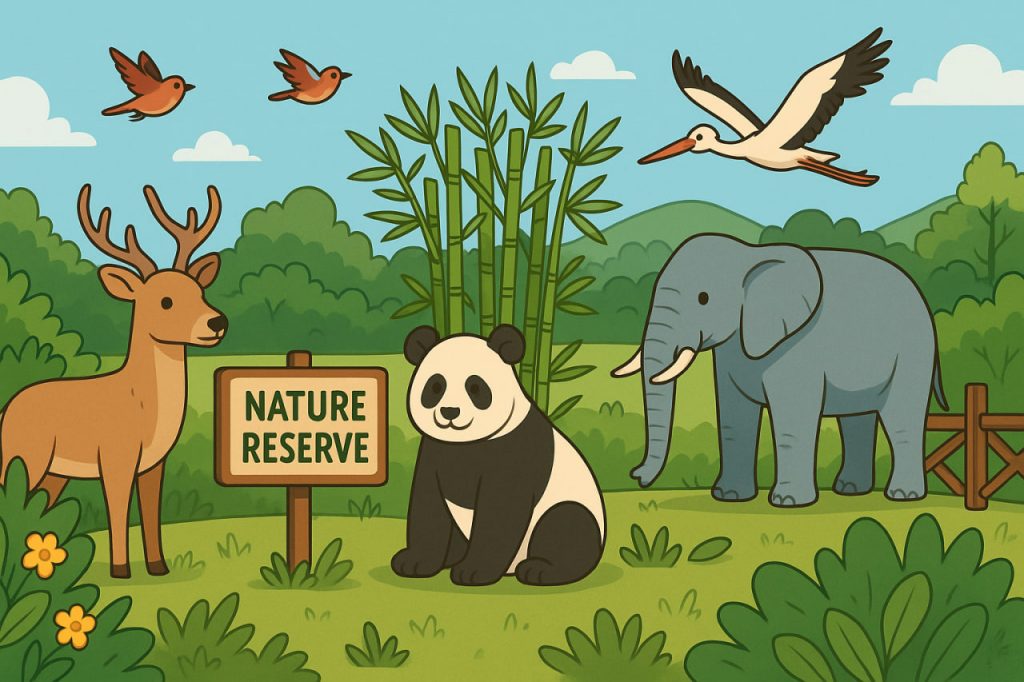A nature reserve (or wildlife sanctuary) is a protected area of land or water where ecosystems, species, and natural resources are preserved for scientific, educational, and conservation purposes. Unlike ordinary land, reserves are carefully managed to minimize human impact, ensuring that plants, animals, and landscapes can thrive in their natural state.
Purpose of Nature Reserves
The main goal of nature reserves is to conserve biodiversity. They protect endangered species from extinction, preserve rare ecosystems, and safeguard genetic diversity. Reserves also serve as natural laboratories, where scientists study ecosystems, climate, and wildlife behavior. For local communities, reserves provide cultural, educational, and even economic benefits through eco-tourism.
Types of Nature Reserves
- Strict reserves – areas with minimal human activity, often closed to the public, dedicated mainly to research and species protection.
- Wildlife sanctuaries – where animals live freely, often with limited public access for observation and education.
- Biosphere reserves – part of UNESCO’s global network, combining conservation with sustainable development.
- Marine reserves – underwater protected zones that safeguard coral reefs, fish populations, and marine biodiversity.
Importance for Ecosystems
Nature reserves help maintain ecological balance. They prevent deforestation, desertification, and habitat destruction. Protecting wetlands, forests, and grasslands ensures that vital ecosystem services—such as clean air, water purification, and climate regulation—are preserved for future generations.
Protection of Wildlife
Reserves provide a safe haven for animals threatened by hunting, habitat loss, or pollution. Species such as tigers, pandas, elephants, and many rare birds survive today thanks to protected areas. By offering shelter and controlled conditions, reserves allow populations to recover and thrive.
Human Impact and Challenges
Despite their protective role, reserves face challenges like illegal logging, poaching, climate change, and encroachment from urbanization. Effective management, laws, and international cooperation are essential to protect these areas. Eco-tourism must also be carefully managed to avoid harming the very ecosystems it promotes.
Conclusion
Nature reserves are vital for preserving biodiversity, protecting endangered species, and maintaining the natural balance of ecosystems. They represent humanity’s commitment to protecting the environment for future generations. By conserving these areas, we ensure that the richness of life on Earth continues to flourish despite modern challenges.
Glossary
- Nature Reserve – a protected area dedicated to conserving ecosystems and species.
- Biodiversity – the variety of life forms within ecosystems, species, and genes.
- Ecosystem Services – natural processes that provide benefits like clean air, water, and soil fertility.
- Poaching – illegal hunting or capturing of wild animals.
- Biosphere Reserve – UNESCO-protected regions that combine conservation with human development.
- Eco-tourism – tourism focused on experiencing and conserving natural environments.


